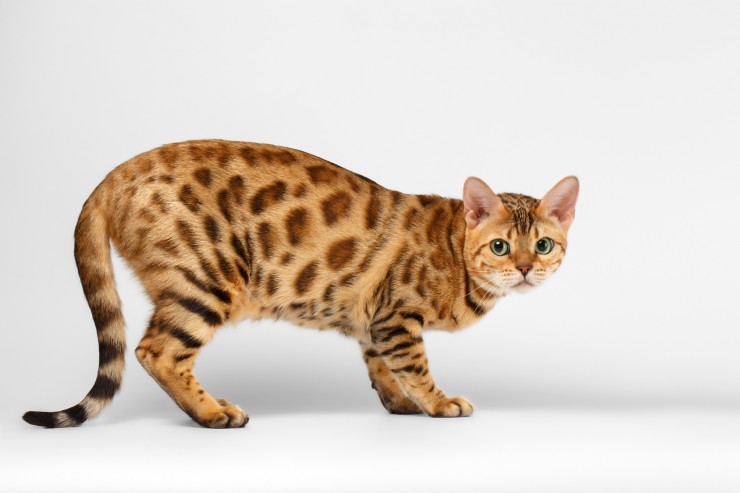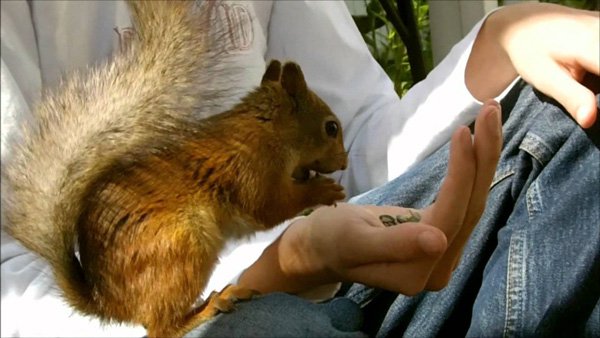

If you've been sharing your home with pedigree cats for a while, maybe your thoughts have just started to turn to breeding them yourself. There's a lot to consider before you embark on this next big step, and plenty of questions you need to ask yourself to see if you are ready for this additional commitment, including your reasons for wanting to do it. If you've been showing any of your cats you will probably already have met a number of cat breeders and talked to them about it, but if not, have a chat to the breeders of your cats, or make contact with your local cat club.
A lot of people believe that cat breeding must be a very lucrative hobby, and maybe you have invested what felt like a large sum of money in your new kitten, but this is not something to be undertaken lightly. If you are lucky (and yes, luck does come into it to a certain extent) you may break even on your outgoings, but you will not make a huge profit, and quite possibly not even a small one. Cat breeders have a lot of financial outgoings that are not seen by prospective purchasers of their kittens, including stud fees and travel, additional health checks, feeding and vaccinating your kittens, as well as extra veterinary fees as any medical problems associated with breeding will not be covered by your pet insurance.
It is recommended that you do not set out to breed non-pedigree kittens as there are always so many lovely cats and kittens being cared for by various animal sanctuaries that are looking for permanent new homes. Often they are rescued from living wild, or are even unwanted or abandoned, and it would be irresponsible to bring more kittens into the world and maybe prevent a homeless non-pedigree kitten from being found a new owner. In addition, there are a number of diseases that can be sexually transmitted between cats, some of them not easily curable, if your female cat simply mates with the local 'tom cat'.
It is a complete fallacy that young female cats need to have a litter before they are spayed, and if you are not going to breed with them, they should ideally be spayed as soon as your vet agrees they are big enough, usually at around 6 months old. As female kittens get older, many become rather pre-occupied with mating, and do not necessarily make the most affectionate pets. This applies to pedigree and non-pedigree cats alike, as entire female cats will look for every opportunity to disappear out into the great wide world of your garden and beyond if they are in season. Depending on the breed, they may also have a very loud piercing voice whilst they are calling for a mate, known as 'calling', which will attract a range of local feline suitors. Obviously if you are planning to breed with your new female kitten, this is something you will need to bear in mind, and you should keep her in, probably not breeding from her until she is at least nine months old to give her chance to develop and mature. It is wise not to let your cat have too many 'calls' before you mate her as this can sometimes lead to a number of health problems, including ovarian cysts, which could ultimately mean that you will not be able to breed with her at all. Some breeds mature sexually at quite an early age, and the breeder from whom you bought your kitten will be able to advise on this, as it does depend on the breed and sometimes on individual breeding lines.
Even if your cat looks like a pedigree but you do not have any registration papers, it is very unlikely that you will be able to breed with her as the stud owner (who will undoubtedly be an experienced breeder) will want to see her pedigree to check that the two cats are not too closely related, as interbreeding can often lead to serious health problems. If you have taken on a young entire female cat without the full papers (maybe the previous owner has died), it might be possible to acquire a duplicate set if she was originally registered with the Governing Council of the Cat Fancy (GCCF - the cat equivalent of the Kennel Club) but this cannot be guaranteed.
Breeders who are registered with the GCCF sell their kittens on either the Active or the Non-Active register, and this will be explained to you as a prospective purchaser when you contact the breeder about buying one of their kittens, and it will also be indicated on the registration papers. 'Active' means that the cat may be bred from, and all resulting kittens may also be registered with the GCCF. 'Non-active' means that the breeder is asking you not to breed with this particular cat, which could be for a wide variety of reasons including that they do not feel the kitten is a good enough example of the breed, or has a specific genetic fault, or maybe even that the pedigree includes some non-eligible outcrosses that have been used to strengthen the breeding gene pool but precludes any further progeny from being registered. A reputable breeder will explain all of this to you, and whereas such kittens should not be bred from, they will nevertheless make lovely pets.
Some breeders register their kittens only with The International Cat Association (TICA), although this is not all that common in the UK, but they also have a policy of registering kittens as 'Not for Breeding', for similar reasons to GCCF breeders, and you can check the TICA website for more information. There is also the international Fédération Internationale Féline (FIFe), known in the UK as Felis Britannica (FB), whose individual clubs register members' cats, and again, more information may be found on their website.
One of the prime considerations when deciding whether to start breeding cats of your chosen breed is the time commitment. If you work long or rather inflexible hours, or if your work takes you away from home frequently, this probably won't be for you, as cats are unpredictable creatures and you need to be available to take time off when you have kittens due, in case of any problems. In the early days after the birth you may want to be around to check that all is well, and as your kittens get older you may also need to be available to pop home at lunchtime to check that they are all feeding properly.
If you and your family tend to go away on holiday very much, you may feel that cat breeding does not suit your lifestyle as it is an enormous commitment, and whereas you can leave your neutered pets in a good cattery, or arrange for the neighbours to feed them in your absence, this is not quite the same with breeding cats. It doesn't suit everyone, and you can still have huge fun with your cats as well-loved pets, or even as show cats, without becoming a breeder.
 Chicken Runs: Here's a Shortlist of What to Expect When Buying
Chicken Runs: Here's a Shortlist of What to Expect Wh
Chicken Runs: Here's a Shortlist of What to Expect When Buying
Chicken Runs: Here's a Shortlist of What to Expect Wh
 A Veterinary Nurse Shares Five False Economies When It Comes To Dog Ownership
A Veterinary Nurs
A Veterinary Nurse Shares Five False Economies When It Comes To Dog Ownership
A Veterinary Nurs
 Portosystemic Shunt In Dogs - Symptoms And Treatment
Portosystemic Shu
Portosystemic Shunt In Dogs - Symptoms And Treatment
Portosystemic Shu
 Can Dogs And Cats Be Vegetarians?
Can Dogs And Cats
Can Dogs And Cats Be Vegetarians?
Can Dogs And Cats
 Marketing Your Pet Services at the Next Pet Show
A trade show prize wheel can be a powerful marketing tool in
Marketing Your Pet Services at the Next Pet Show
A trade show prize wheel can be a powerful marketing tool in
Copyright © 2005-2016 Pet Information All Rights Reserved
Contact us: www162date@outlook.com